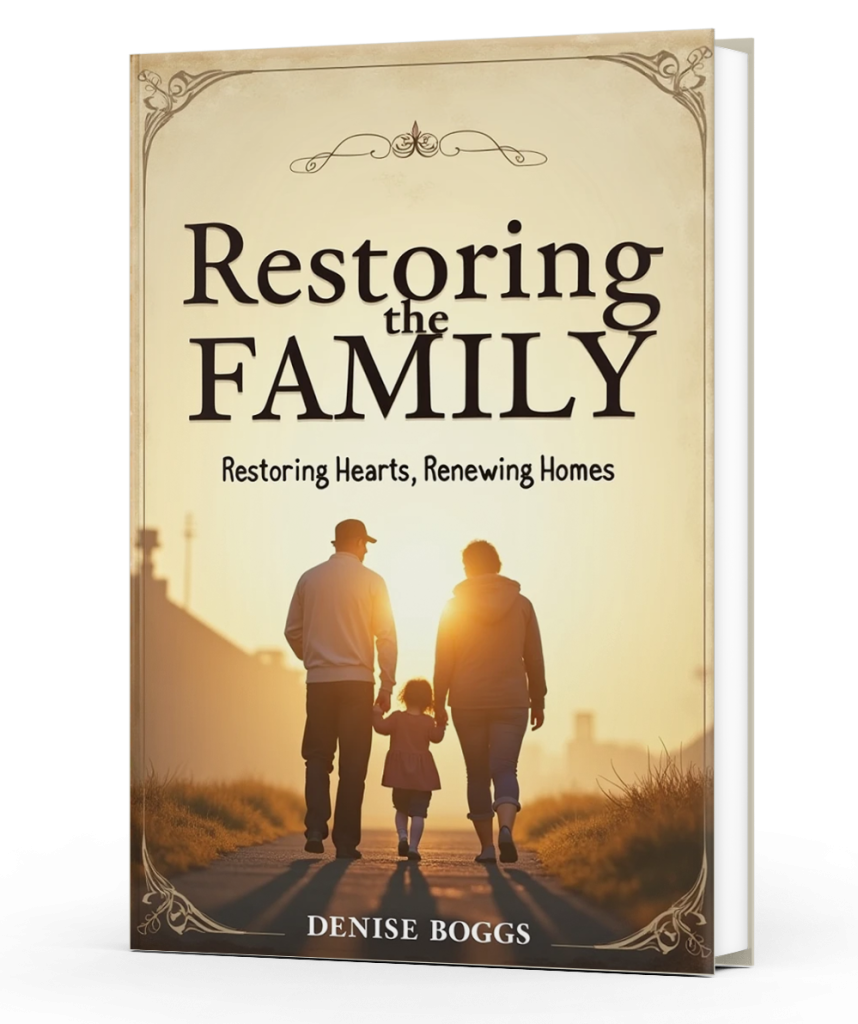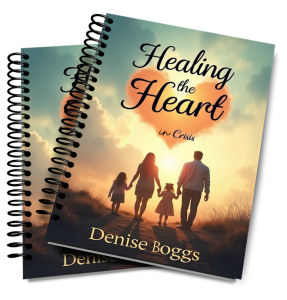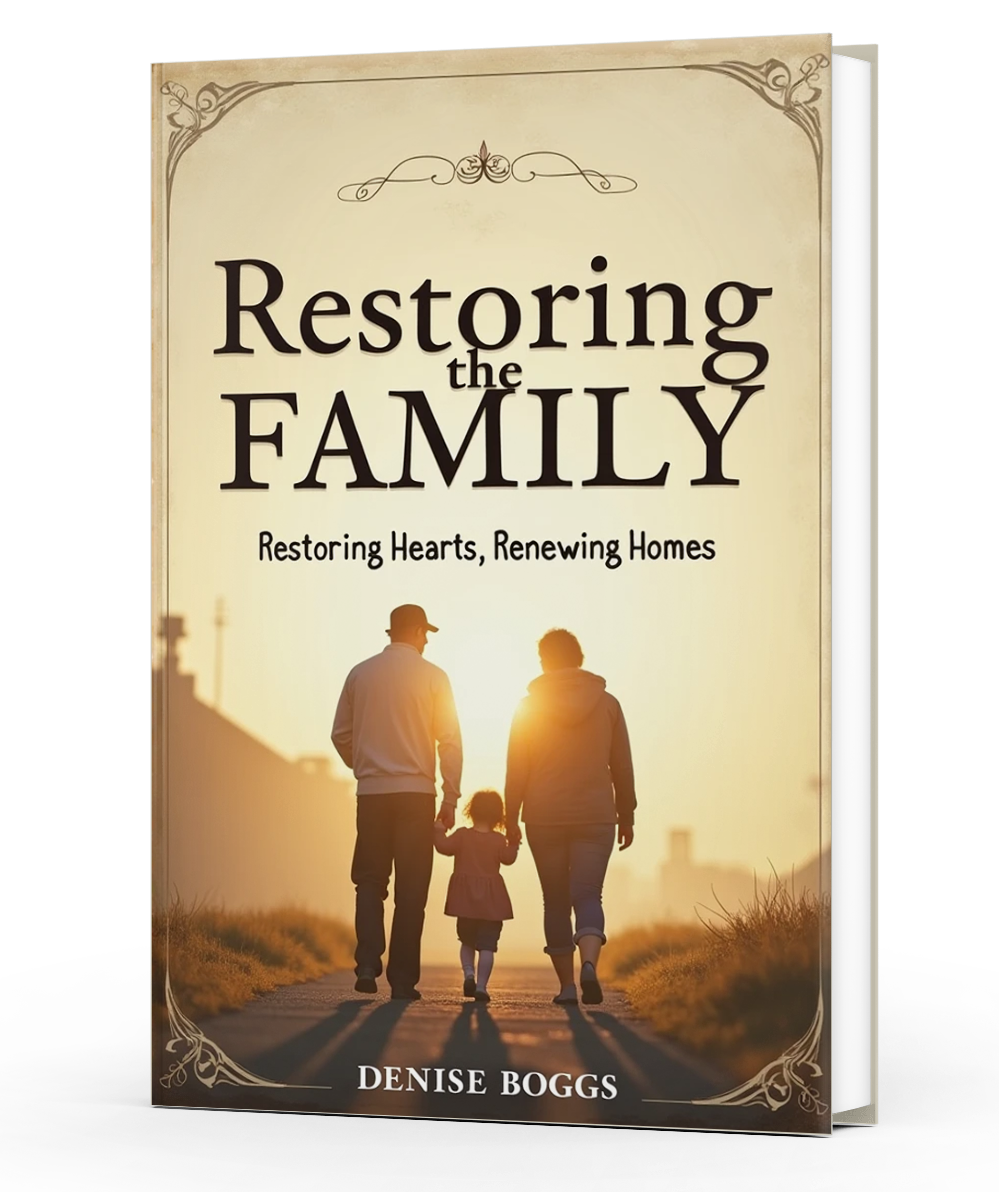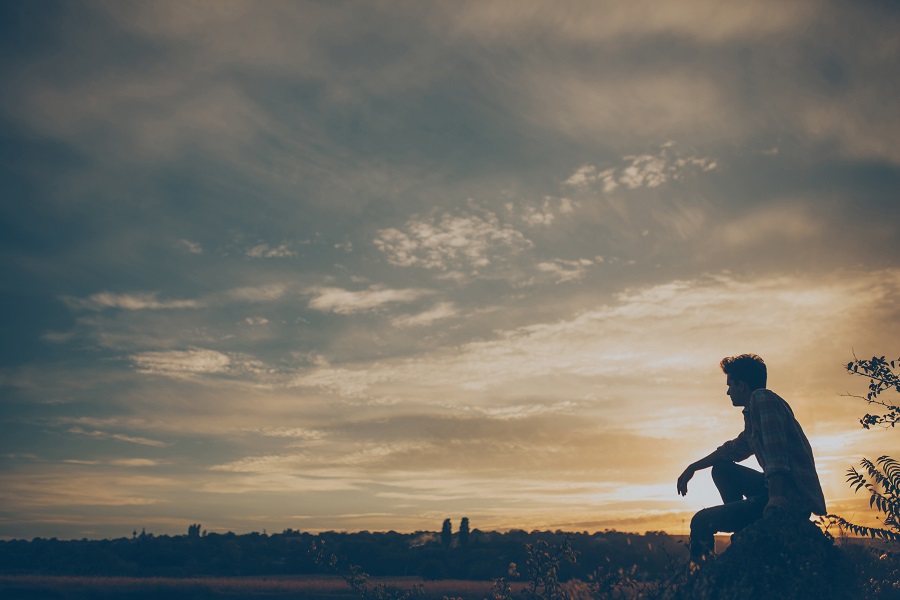
by Joseph | Feb 26, 2026 | Sharing
Throughout history, the Bible offers timeless lessons about preparation, diligence, and the dangers of complacency. One such story is the life of Joseph, the son of Jacob, who, through God’s guidance, helped Egypt avoid catastrophe by preparing for a famine. His foresight saved an entire nation and surrounding regions from devastation. Yet, despite the clear warning signs and prophetic dreams, many refused to heed the call to prepare. Today, as believers, we find ourselves in a similar situation: we remain in our slumber, unprepared for the spiritual and physical challenges that lie ahead.
In this reflection, we will delve into Joseph’s story and the importance of preparation, both spiritually and practically, while drawing parallels to our current state of unpreparedness.
Joseph: A Man of Vision and Preparation
Joseph’s journey from the pit to the palace is one of God’s providence and divine wisdom. Betrayed by his brothers, sold into slavery, and falsely imprisoned, Joseph’s life appeared to be filled with hardship. However, God had a greater plan for him—a plan not only for Joseph’s personal redemption but also for the preservation of nations.
The key turning point in Joseph’s story is found in Genesis 41. Pharaoh, the ruler of Egypt, had two disturbing dreams that none of his wise men could interpret. It was then that Joseph, empowered by God, was brought from prison to interpret the dreams. Joseph revealed that the dreams foretold seven years of abundance followed by seven years of severe famine. Pharaoh’s dreams were God’s warning, providing Egypt an opportunity to prepare for the inevitable disaster.
Joseph said to Pharaoh:
“Now let Pharaoh look for a man discerning and wise, and set him over the land of Egypt. Let Pharaoh take action to appoint overseers in charge of the land, and let him exact a fifth of the produce of the land of Egypt in the seven years of abundance. Then let them gather all the food of these good years that are coming and store up the grain for food in the cities under Pharaoh’s authority, and let them guard it. Let the food become as a reserve for the land for the seven years of famine which will occur in the land of Egypt, so that the land will not perish during the famine.”
(Genesis 41:33-36, NAS)
Joseph not only interpreted the dreams but also provided a detailed plan for preparation. He urged immediate action to save the nation from ruin. Pharaoh, recognizing the wisdom in Joseph’s words, placed him in charge of the task.
The Danger of Complacency: Ignoring the Warnings
While Egypt was blessed with a leader who heeded God’s warning, we see in other parts of scripture the tragic consequences of ignoring such warnings. In many ways, Joseph’s foresight and diligence stand in contrast to the complacency and spiritual slumber of others throughout biblical history. In the days of Noah, the people refused to listen to the warning of the impending flood. In the parable of the ten virgins, five were wise and prepared with oil for their lamps, while five were foolish and unprepared when the bridegroom arrived (Matthew 25:1-13).
Scripture repeatedly warns against spiritual slumber and unpreparedness. In Romans 13:11, Paul urges believers:
“Do this, knowing the time, that it is already the hour for you to awaken from sleep; for now salvation is nearer to us than when we believed.”
Paul’s words serve as a call to wake up from our spiritual lethargy and prepare ourselves for the coming of the Lord. Just as Joseph acted with urgency, recognizing the limited time before the famine struck, so must we be vigilant and ready.
In our modern context, we are often lulled into complacency by the comforts and distractions of everyday life. We convince ourselves that there will always be more time to prepare—whether spiritually, physically, or emotionally. However, as Joseph’s story shows us, preparation must happen before the crisis arrives. Once the famine begins, it is too late to start storing grain.
Spiritual Preparation: A Call to Awaken
Beyond physical preparedness, Joseph’s story teaches us an important spiritual truth. The famine can be seen as a metaphor for times of spiritual testing and tribulation. Just as Joseph stored grain during the years of plenty, we too must store up spiritual strength during times of peace and prosperity. The Bible repeatedly calls us to prepare spiritually for the challenges and trials that will come.
1 Peter 5:8 reminds us:
“Be of sober spirit, be on the alert. Your adversary, the devil, prowls around like a roaring lion, seeking someone to devour.”
We cannot afford to be spiritually asleep while the enemy is actively seeking to destroy. Like Joseph, we must be discerning and wise, understanding the times and preparing ourselves and our families for the spiritual battles ahead.
Jesus Himself often warned His followers about the importance of staying awake and being prepared. In Luke 12:35-40, Jesus tells the parable of servants waiting for their master to return from a wedding feast. He concludes with this admonition:
“You too, be ready; for the Son of Man is coming at an hour that you do not expect.”
Joseph’s diligence in preparing for the famine is a vivid illustration of this principle. Just as Egypt needed physical stores of grain, we need to store up spiritual resources: faith, prayer, the Word of God, and fellowship with other believers. We must not be caught unprepared when trials, tribulations, or even Christ’s return come upon us.
The Consequences of Ignoring the Call
Despite Joseph’s clear warning and diligent preparation, not everyone in the region was as wise as Egypt. As the famine spread, people from surrounding lands were forced to come to Egypt to buy grain because they had not prepared themselves.
The Bible records that “the famine was severe in all the earth” (Genesis 41:57, NAS). Many suffered greatly because they had failed to heed the warning signs and make preparations during the years of abundance. The neighboring nations were at the mercy of Egypt’s stores of grain, and they had to pay a great price for their lack of foresight.
This serves as a sobering reminder that there are real consequences for remaining in a state of unpreparedness. Both in physical matters and spiritual ones, failure to act when the time is right can lead to devastation. Whether it is the consequences of sin, the trials of life, or the final judgment, those who do not prepare will face hardship.
In Proverbs 6:6-8, we are told to learn from the ant:
“Go to the ant, O sluggard, Observe her ways and be wise, Which, having no chief, Officer or ruler, Prepares her food in the summer And gathers her provision in the harvest.”
Just as the ant prepares during the summer for the difficult times of winter, we must also prepare ourselves for the future. There is wisdom in foresight and diligence, and there is peril in complacency.
Conclusion: Awaken from Slumber and Be Prepared
Joseph’s story is not merely a historical account but a living lesson for us today. The call to prepare—both spiritually and practically—is as relevant now as it was in ancient Egypt. We must awaken from our slumber and heed the warnings that God has given us, whether through His Word, through current events, or through the inner prompting of the Holy Spirit.
It is easy to be lulled into a false sense of security during times of peace and prosperity. But just as Joseph understood that the years of abundance would not last forever, we must recognize that there are challenges ahead, both in this life and in the life to come. The time to prepare is now.
The words of Jesus in Mark 13:33 should resonate deeply with us:
“Take heed, keep on the alert; for you do not know when the appointed time will come.”
Let us not be like those who ignored the signs and suffered as a result. Instead, let us be diligent, discerning, and wise like Joseph, preparing ourselves and our households for whatever may come. Whether it is a physical crisis, a spiritual battle, or the return of our Lord, we must be ready.
In the end, the message is clear: we cannot afford to remain in our slumber and be unprepared. The stakes are too high, and the time is too short. May we take action today and prepare for the future, trusting in God’s wisdom and guidance every step of the way.
FAQ: Lessons from Joseph and the Importance of Preparation
1. Why is the story of Joseph relevant to the theme of preparedness?
Joseph’s story highlights the importance of preparation, both spiritually and practically. By interpreting Pharaoh’s dreams and devising a plan to store grain during seven years of abundance, Joseph saved Egypt and surrounding nations from a devastating famine. His foresight and diligence serve as a timeless reminder that preparation is crucial in avoiding disaster.
2. What does Joseph’s preparation for famine teach us about spiritual preparedness?
Joseph’s physical preparation for famine parallels the need for spiritual readiness. Just as Joseph stored grain to endure future hardship, we must “store up” spiritual resources—faith, prayer, and knowledge of God’s Word—so we are equipped to face spiritual trials and life’s challenges. Failing to prepare spiritually leaves us vulnerable to temptation and difficulty.
3. How can we apply the lessons of Joseph to our modern lives?
The lessons of Joseph remind us to be vigilant and proactive, not just in physical matters but in our spiritual lives as well. In today’s world, this means preparing for unforeseen challenges, seeking God’s guidance, and taking steps to ensure we are spiritually and practically equipped for the future. This includes budgeting, planning for emergencies, and maintaining a strong relationship with God.
4. What are the dangers of complacency in both physical and spiritual matters?
Complacency, or a failure to act when prompted, leads to severe consequences. In Joseph’s time, those who did not heed the warning of famine suffered greatly. Similarly, when we ignore spiritual warnings or fail to prepare for life’s challenges, we may find ourselves struggling unnecessarily. Spiritual complacency can result in weakened faith and vulnerability in difficult times.
5. How does Joseph’s story connect to Jesus’ teachings about being ready for His return?
Jesus often warned His followers to remain vigilant and prepared for His second coming, as seen in Luke 12:35-40 and Mark 13:33. Just as Joseph urged Pharaoh to prepare for the famine, Jesus calls His followers to be spiritually awake and ready for His return. We do not know the hour or day of Christ’s return, so constant spiritual readiness is essential.
6. What does the Bible say about ignoring warnings and failing to prepare?
Throughout Scripture, we see examples of people ignoring God’s warnings and suffering as a result. The people in Noah’s time perished in the flood because they ignored the warnings, and the five foolish virgins were unprepared when the bridegroom arrived (Matthew 25:1-13). The Bible calls us to take heed of warnings and act wisely to avoid unnecessary hardship.
7. What are practical steps we can take to avoid spiritual slumber?
To avoid spiritual slumber, we must stay engaged in our faith through regular prayer, Bible study, and fellowship with other believers. Additionally, we should remain sensitive to the Holy Spirit’s prompting and be proactive in areas of our lives that need attention—whether physical, emotional, or spiritual. Seeking God’s guidance in decisions and being diligent in all things helps us stay prepared.
8. Why is it important to act during times of abundance or peace?
Joseph recognized that the years of abundance were not guaranteed to last, and that the time to prepare was when resources were plentiful. This principle applies spiritually as well. Times of peace and prosperity are opportunities to strengthen our faith and store spiritual “grain” so that when challenges arise, we have the resources to endure them. Waiting until a crisis hits to prepare is often too late.
9. How can Joseph’s wisdom help us prepare for future uncertainties?
Joseph’s wisdom lies in his ability to discern God’s plan and take immediate action. His trust in God’s provision and his willingness to lead the nation in preparation set an example for us to follow. We can learn from his story by being proactive, seeking God’s direction, and acting wisely to prepare for future uncertainties, whether they be economic, environmental, or spiritual.
10. What is the spiritual significance of being “awake” as referenced in Romans 13:11?
In Romans 13:11, Paul calls believers to “awaken from sleep” because salvation is nearer than ever. This is a metaphor for spiritual alertness and readiness. To be “awake” means to live with a sense of urgency and awareness of the times, staying prepared for Christ’s return and living faithfully in accordance with God’s will.
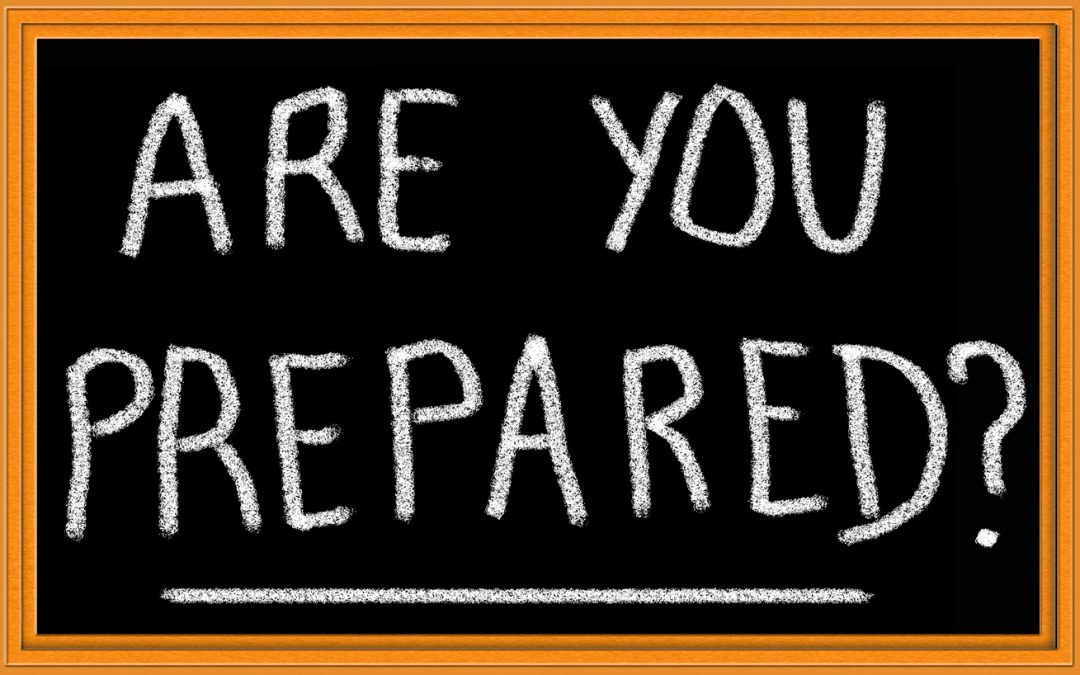
by Joseph | Feb 26, 2026 | Preparation, Sharing
The world around us is constantly changing, and we often find ourselves facing unexpected challenges—whether they be personal struggles, natural disasters, or global crises. The recent floods from Hurricane Helene have reminded us of the fragile nature of life and the need to be vigilant and wise in our preparations. We mourn the losses and pray for those who have had their lives terribly impacted. These tragic events are a sobering reminder that turbulent times may increase in frequency, and the trials we face will require more than just physical readiness. It is in such times that we must look to the wisdom and faith exemplified in the story of Joseph, the son of Jacob, and his preparation for the years of famine in Egypt.
In the face of coming challenges, we can draw comfort and guidance from God’s Word. Like Joseph, who looked beyond the immediate to prepare for the future, we are called to trust in God’s direction and make preparations, not out of fear, but with faith and peace. As the Bible says, “The prudent see danger and take refuge, but the simple keep going and pay the penalty” (Proverbs 22:3). Through Joseph’s story, we can see that preparation is a form of stewardship and an act of faith, allowing us to protect and serve others in times of need.
Joseph’s Preparation: A Biblical Example
1. God’s Guidance in Troubled Times
Joseph’s journey was one marked by hardship, betrayal, and uncertainty. Yet, God was with him through every trial, preparing him for a greater purpose. After interpreting Pharaoh’s troubling dreams, Joseph advised him to prepare during the seven years of abundance for the seven years of famine that would follow.
“Let Pharaoh look for a discerning and wise man and put him in charge of the land of Egypt. Let Pharaoh appoint commissioners over the land to take a fifth of the harvest of Egypt during the seven years of abundance” (Genesis 41:33-34).
This preparation was not driven by panic or fear but by the wisdom God imparted to Joseph. When we look at Joseph’s actions, we see a model for facing uncertainty: seek God’s guidance, use the resources wisely, and prepare diligently. In the same way, we must be attentive to what the Lord is revealing to us today.
2. Trusting in God’s Provision
Joseph’s preparation was underpinned by his faith that God would provide and guide. The seven years of abundance were not a time for complacency, but for storing up resources so that they would not perish during the lean years.
“During the seven years of abundance the land produced plentifully. Joseph collected all the food produced in those seven years of abundance in Egypt and stored it in the cities” (Genesis 41:47-48).
Joseph trusted that the God who brought abundance would also sustain them through the famine. Likewise, our trust must be in God’s ability to provide. Preparation, both physical and spiritual, is a way to acknowledge His sovereignty and provision in our lives.
3. Being Ready to Serve Others in Need
When the famine struck, Egypt became a source of refuge for many, including Joseph’s own family. Because Joseph had prepared in advance, he was able to extend help, food, and safety to those in need. His foresight and readiness saved countless lives.
“All the world came to Egypt to buy grain from Joseph, because the famine was severe everywhere” (Genesis 41:57).
Our preparation should not only focus on ourselves but also on how we can be a blessing to others. Just as Joseph’s obedience positioned him to be a source of hope and provision, we are called to use our resources, skills, and faith to support our communities in times of crisis.
Looking to the Future: Preparing with Wisdom and Faith
The story of Joseph is not just a lesson in preparedness but a reminder of God’s faithfulness in turbulent times. The Bible is filled with verses that encourage us to be wise, watchful, and ready for the days ahead.
Proverbs 6:6-8
“Go to the ant, you sluggard; consider its ways and be wise! It has no commander, no overseer or ruler, yet it stores its provisions in summer and gathers its food at harvest.”
This passage reminds us that preparation is not about living in fear but about living wisely, using the resources and opportunities God gives us today to prepare for what is to come.
Luke 21:36
“Be always on the watch, and pray that you may be able to escape all that is about to happen, and that you may be able to stand before the Son of Man.”
Jesus’ words call us to a state of readiness—not just materially, but spiritually. Prayer and vigilance are crucial, especially in times of turmoil. Our trust in God must be our anchor, keeping us steady amid the storm.
Isaiah 26:3
“You will keep in perfect peace those whose minds are steadfast, because they trust in you.”
Even as we prepare, our hearts must remain at peace. The calm that comes from trusting God will enable us to make sound decisions and respond wisely when challenges arise.
Conclusion
The tragic events of recent floods are a powerful reminder that we live in a world where trials can come suddenly and without warning. Just as Joseph prepared for the famine, we are called to be discerning and wise in these times, using the abundance we have now to prepare for leaner days ahead. But our confidence must not rest in our preparations alone; it must be firmly rooted in God’s faithfulness and provision.
As we prepare, let us do so with hearts full of faith, not fear. May we look to the example of Joseph and, like him, be able to say in the future: “You intended to harm me, but God intended it for good to accomplish what is now being done, the saving of many lives” (Genesis 50:20). With God’s wisdom, guidance, and peace, we can navigate whatever lies ahead and be a source of strength and provision for others in need.

by Joseph | Feb 26, 2026 | Sharing
Life’s journey often takes us through trials and tribulations that test our faith and resilience. These difficult moments can feel overwhelming, but the Bible assures us that God is with us, providing strength and comfort. Just as an oyster transforms a grain of sand into a beautiful pearl, God uses our hardships to create something beautiful within us. Let’s explore how God sustains us during our trials and leads us to a place of renewal and beauty.
God’s Promise of Strength
One of the most reassuring promises in the Bible is that God provides strength to His people. In Isaiah 40:29-31, we read:
“He gives strength to the weary, and to him who lacks might He increases power. Though youths grow weary and tired, and vigorous young men stumble badly, yet those who wait for the Lord will gain new strength; they will mount up with wings like eagles, they will run and not get tired, they will walk and not become weary.”
This passage reminds us that our strength is not dependent on our own abilities but on God’s infinite power. When we feel weak and exhausted, we can rely on God to renew our strength. By waiting on the Lord and trusting in His timing, we find the endurance to persevere through our challenges.
Comfort in God’s Presence
God’s presence is a source of immense comfort during difficult times. The psalmist beautifully expresses this in Psalm 23:4:
“Even though I walk through the valley of the shadow of death, I fear no evil, for You are with me; Your rod and Your staff, they comfort me.”
The imagery of walking through the darkest valley resonates with anyone who has faced trials. Yet, the assurance that God is with us, guiding and protecting us, dispels fear. His presence brings peace and comfort, even in the most trying circumstances.
The Refining Process
Our trials serve a greater purpose in God’s plan. Just as an oyster endures irritation to produce a pearl, we undergo a refining process that brings forth spiritual growth and beauty. James 1:2-4 encourages us to view our trials from this perspective:
“Consider it all joy, my brethren, when you encounter various trials, knowing that the testing of your faith produces endurance. And let endurance have its perfect result, so that you may be perfect and complete, lacking in nothing.”
James challenges us to embrace our trials with joy, understanding that they are shaping us into more complete and mature believers. This refining process strengthens our faith and character, preparing us for greater things in God’s kingdom.
Hope and Renewal
God’s ultimate goal is to bring us to a place of hope and renewal. He doesn’t leave us in our broken state but transforms us through His grace. In 1 Peter 5:10, we find this promise:
“After you have suffered for a little while, the God of all grace, who called you to His eternal glory in Christ, will Himself perfect, confirm, strengthen, and establish you.”
Our suffering is temporary, and God’s grace is eternal. He personally involves Himself in our restoration, ensuring that we emerge stronger and more firmly rooted in His love. This promise fills us with hope, knowing that our trials are not the end but a pathway to a renewed and strengthened life.
God’s Faithfulness
Throughout Scripture, we see countless examples of God’s faithfulness in the lives of His people. Consider the story of Joseph in the book of Genesis. Despite being sold into slavery by his brothers and enduring years of hardship, Joseph remained faithful to God. In the end, God elevated him to a position of great authority in Egypt, using Joseph to save many lives during a severe famine. Joseph’s words to his brothers in Genesis 50:20 reflect his understanding of God’s providence:
“As for you, you meant evil against me, but God meant it for good in order to bring about this present result, to preserve many people alive.”
Joseph’s story illustrates how God can turn even the most painful experiences into something good and purposeful. His faithfulness to Joseph is a testament to His faithfulness to us. No matter what we face, we can trust that God is working all things for our good (Romans 8:28).
The Beauty of God’s Transformation
God’s transformative power is not limited to ancient stories; it is active in our lives today. When we surrender our struggles to Him, He can create something beautiful out of our pain. The Apostle Paul experienced this firsthand and shared his insight in 2 Corinthians 12:9-10:
“And He has said to me, ‘My grace is sufficient for you, for power is perfected in weakness.’ Most gladly, therefore, I will rather boast about my weaknesses, so that the power of Christ may dwell in me. Therefore I am well content with weaknesses, with insults, with distresses, with persecutions, with difficulties, for Christ’s sake; for when I am weak, then I am strong.”
Paul understood that his weaknesses and trials were opportunities for God’s power to be displayed. Our struggles allow God’s grace to shine through, revealing His strength in our lives. This transformation is like the creation of a pearl—a process that turns irritation into beauty.
A Prayer for Strength and Renewal
Let us conclude with a prayer, seeking God’s strength and comfort in our trials and trusting in His transformative power:
Heavenly Father,
We come before You with hearts that are often weary and burdened by the trials of life. We thank You for Your promise to give strength to the weary and to increase the power of those who lack might. Help us to wait on You, trusting that You will renew our strength and enable us to soar on wings like eagles.
Lord, we find comfort in Your presence, knowing that even in the darkest valleys, You are with us. Your rod and staff guide and protect us, bringing us peace in the midst of our struggles.
We acknowledge that our trials serve a purpose in Your divine plan. As an oyster transforms a grain of sand into a beautiful pearl, we ask that You use our hardships to refine and shape us into more complete and mature believers. Grant us the endurance to persevere with joy, knowing that our faith is being strengthened.
Father, we hold on to the hope of Your promise that after we have suffered for a little while, You, the God of all grace, will perfect, confirm, strengthen, and establish us. We trust in Your faithfulness, believing that You are working all things for our good.
Transform our pain into beauty, Lord. Let Your grace shine through our weaknesses, revealing Your strength and power. We surrender our struggles to You, confident that You are creating something beautiful within us.
In Jesus’ name, we pray. Amen.
May this message remind you of God’s unwavering presence, His strength that sustains you, and His grace that transforms your trials into a testimony of His love and faithfulness.

by Joseph | Feb 26, 2026 | Sharing
Finding Hope in God Amidst Discouragement: Lessons from Joseph’s Story
Life can bring seasons of deep discouragement that shake us to our core. Our heart is to lean and find hope in God when discouraged. In the darkest of valleys, it’s easy to lose sight of God’s goodness and plan. When we face rejection, betrayal, injustice, loss and suffering, we may wonder: “Where are you God? Do you see what I’m going through?”
Genesis 50:20 (NIV) – “You intended to harm me, but God intended it for good to accomplish what is now being done, the saving of many lives.”
 Joseph’s story reminds us that God is always present and working behind the scenes, even in our darkest hours. As a young man, Joseph was betrayed by his brothers, sold into slavery, falsely accused, and forgotten in prison. Talk about discouraging circumstances! Yet through it all, “the LORD was with Joseph” (Genesis 39:2).
Joseph’s story reminds us that God is always present and working behind the scenes, even in our darkest hours. As a young man, Joseph was betrayed by his brothers, sold into slavery, falsely accused, and forgotten in prison. Talk about discouraging circumstances! Yet through it all, “the LORD was with Joseph” (Genesis 39:2).
God gave Joseph strength, wisdom and favor. It probably didn’t happen exactly when Joseph wanted, but he elevated Joseph to a position of influence to save many lives during a famine. What man intended for harm, God intended for good. Joseph chose to trust God’s plan and timing, even when it made no sense. He believed God would redeem and restore – and God did. I know God will show up and provide the joy in the morning.
God sees what you’re walking through. He hasn’t forgotten or abandoned you. Resist the urge to view your situation through the lens of discouragement. Choose to look through the lens of faith and focus on God’s unfailing character. Cling to His promises. Spend time in His presence and Word to combat discouragement with truth. God is preparing you, positioning you and working all things for your good and His glory.
No matter how hopeless things seem, there is reason for hope in God when discouraged. We serve an awesome, sovereign God. Like Joseph, may we keep our eyes on the Lord and trust His heart when we can’t trace His hand. Take courage – your story isn’t over yet. The same God who was with Joseph is with you. He will redeem every hurt and do exceedingly more than you can imagine.
Reflect:
- What discouragement are you currently facing? Process your raw emotions with God.
- How can Joseph’s story give you a new perspective?
- What promise from Scripture can you hold onto for hope?
Prayer: “Heavenly Father, You see the discouragement I’m battling. Please give me eyes to see my situation and future from Your perspective. Strengthen me to keep trusting Your plan even when I don’t understand. Use this trial to prepare and position me for Your purposes. Restore my joy as I place my hope fully in You. In Jesus’ name, Amen.”
by Joseph | Feb 26, 2026 | Sharing
Finding Your Purpose in the Midst of Chaos
Introduction: The Struggle to Find Purpose in Chaos
In a world filled with uncertainty, chaos, and tribulation, it is easy to lose sight of our God-given purpose. We may find ourselves questioning the path we are on and struggling to maintain faith in the face of adversity. However, the story of Joseph in the Bible serves as a powerful reminder that God’s plan is always at work, even in the most challenging of circumstances, and that finding your purpose in chaos is possible through faith and trust in Him.
Joseph’s Story: Finding Purpose in Chaos
Joseph’s life was a testament to the fact that God can use even the darkest of situations for His greater purpose. As it is written in Genesis 50:20 (NASB), “As for you, you meant evil against me, but God meant it for good in order to bring about this present result, to preserve many people alive.” Despite being sold into slavery by his own brothers (Genesis 37:28) and falsely accused and imprisoned (Genesis 39:20), Joseph remained steadfast in his faith, trusting that God had a plan for his life. He was able to find his purpose in the midst of chaos, ultimately saving countless lives during the famine.
The Challenges We Face: Chaos in Our Lives
In our current times, we face a multitude of difficulties that can shake our faith and leave us feeling lost and purposeless. From the ongoing global pandemic to economic instability, social unrest, and natural disasters, it is easy to become overwhelmed by the chaos that surrounds us. However, like Joseph, we must recognize that these trials and tribulations are not without purpose, and that finding your purpose in chaos is achievable by leaning on God’s guidance.
God’s Plan: Finding Your Purpose Through Chaos
God uses these challenging times to mold us, to strengthen our faith, and to prepare us for the purpose He has set before us. As Romans 5:3-5 (NASB) states, “And not only this, but we also exult in our tribulations, knowing that tribulation brings about perseverance; and perseverance, proven character; and proven character, hope; and hope does not disappoint, because the love of God has been poured out within our hearts through the Holy Spirit who was given to us.” By trusting in God’s plan and allowing Him to guide us through the chaos, we can discover our true purpose.
Preparing for the Journey: Finding Purpose in Chaos
In light of the current difficulties we face, it is crucial that we not only trust in God’s plan but also take practical steps to prepare ourselves for the challenges ahead. Just as Joseph used his God-given wisdom to prepare for the famine by storing up grain (Genesis 41:47-49), we too must be proactive in our preparations as we work towards finding our purpose in the midst of chaos.
- Spiritual Preparedness: Strengthening Faith to Find Purpose First and foremost, we must ensure that our faith is firmly rooted in God’s Word. By spending time in prayer, studying the Bible, and cultivating a deeper relationship with Christ, we will be better equipped to face the spiritual battles that lie ahead and to discern God’s purpose for our lives. As Ephesians 6:13 (NASB) reminds us, “Therefore, take up the full armor of God, so that you will be able to resist in the evil day, and having done everything, to stand firm.”
- Physical Preparedness: Practical Steps to Navigate Chaos In addition to spiritual preparedness, we must also take practical steps to ensure that we are physically prepared for the challenges we may face. This can include storing up essential supplies, learning valuable skills, and building a support network of like-minded individuals. Proverbs 22:3 (NASB) states, “The prudent sees the evil and hides himself, but the naive go on, and are punished for it.” By being physically prepared, we can better focus on finding our purpose in chaos without being overwhelmed by material concerns.
- Mental and Emotional Preparedness: Maintaining Resilience in Chaos Navigating through chaos and uncertainty can take a toll on our mental and emotional well-being. It is essential that we prioritize self-care, seek out support when needed, and maintain a positive outlook, even in the face of adversity. Philippians 4:6-7 (NASB) encourages us, saying, “Be anxious for nothing, but in everything by prayer and supplication with thanksgiving let your requests be made known to God. And the peace of God, which surpasses all comprehension, will guard your hearts and your minds in Christ Jesus.” By maintaining a strong mental and emotional foundation, we can more easily navigate the process of finding our purpose in chaos.
Conclusion: Trusting God’s Plan in Finding Your Purpose
In conclusion, while the chaos of the world may tempt us to lose sight of our purpose, we must remember that God is always in control. Like Joseph, we must trust in His plan, remain faithful in the face of adversity, and take proactive steps to prepare ourselves for the challenges ahead. By doing so, we can embark on the journey of finding our purpose in chaos, secure in the knowledge that God will use every trial and tribulation to shape us and guide us toward the purpose He has set before us.

by Joseph | Feb 26, 2026 | Sharing
Trusting in God’s Timing
In our Preparedness journey, there is so much we must deal with – and will face in the future. In Preparedness, the point is not to simply rush about because we have fear, but to prepare so we are a stable support for our family and others during times of difficulties. I believe God always has us preparing for things ahead. Life is filled with triumphs and difficulties – and we must be ready to handle whatever comes. God’s timing and training is perfect.
In a world that often demands instant gratification, learning to trust in God’s timing is a fundamental aspect of our faith journey. The Bible is filled with stories of individuals who had to wait patiently for God’s plan to unfold in their lives. Abraham and Sarah waited decades for the fulfillment of God’s promise of a son (Genesis 21:1-7). Joseph endured years of hardship before God elevated him to a position of authority in Egypt (Genesis 41:41-43). Even Jesus, our ultimate example, waited until the appointed time to begin His earthly ministry (Luke 3:23).
These stories teach us that God’s timing is not just perfect; it is purposeful. Every moment of waiting is an opportunity for growth, refinement, and preparation. Romans 5:3-4 NIV reminds us, “…we also glory in our sufferings, because we know that suffering produces perseverance; perseverance, character; and character, hope.” As we wait upon the Lord, our character is shaped, our faith is strengthened, and our hope is renewed.
Trusting in God’s timing requires a deep, abiding faith in His goodness and sovereignty. It means believing that He is working behind the scenes, even when we cannot see or understand His hand at work. It is a daily choice to surrender our timeline to His divine plan, knowing that His ways are higher than our ways (Isaiah 55:8-9).
As we navigate the seasons of waiting in our lives, let us hold fast to the promise found in Habakkuk 2:3 NIV, “For the revelation awaits an appointed time… though it linger, wait for it; it will certainly come and will not delay.” Let us find comfort in the knowledge that God’s timing is never late, never early, but always right on time.
- “He has made everything beautiful in its time…” – Ecclesiastes 3:11a NIV
- “But they who wait for the Lord shall renew their strength; they shall mount up with wings like eagles; they shall run and not be weary; they shall walk and not faint.” – Isaiah 40:31 ESV
Prayer:
Heavenly Father, I confess that waiting is not always easy. My heart longs for answers, for breakthroughs, and for the fulfillment of Your promises in my life. Help me to trust in Your perfect timing, even when I cannot see the full picture. Give me the strength to persevere, the faith to believe, and the patience to wait upon You. I choose to surrender my timeline to Your divine plan, knowing that You are working all things together for my good and Your glory. In Jesus’ name, Amen.

by Joseph | Feb 26, 2026 | Sharing
In our preparedness journey, the greatest skills and teachings have come from experiencing difficulties and learning skills to overcome challenges. We gain confidence and strength as we deal with hardships and learn. The reality is, we grow when we are uncomfortable. The same can be said about overcoming difficulties or hurts we may encounter (or cause) in our relationships. Sharing grace and love sometimes requires us to mature and grow in our Faith. Gods Grace is sufficient – but ours often needs recharging.
The power of forgiveness is a central theme throughout the Bible, and we see numerous examples of how forgiveness can transform lives and relationships. Another striking instance is found in the story of the prodigal son in Luke 15:11-32. In this parable, a father’s younger son demands his inheritance, then squanders it in wild living. When the son eventually returns home, broke and humiliated, the father doesn’t hold the past against him. Instead, he runs to embrace his son, welcoming him back with open arms and celebrating his return.
This story illustrates the depth of God’s love and forgiveness towards us. No matter how far we may wander or how badly we may mess up, God is always ready to welcome us back with compassion and grace. As it says in 1 John 1:9, “If we confess our sins, he is faithful and just and will forgive us our sins and purify us from all unrighteousness.”
Forgiveness is not always easy, but it is essential for our spiritual and emotional well-being. When we harbor unforgiveness, it’s like allowing a poison to take root in our hearts. It breeds bitterness, resentment, and anger, hindering our ability to love others and experience the fullness of God’s love for us. In contrast, when we choose to forgive, we open the door for healing, reconciliation, and freedom.
Jesus emphasized the importance of forgiveness in His teachings, even instructing us to forgive those who wrong us “seventy-seven times” (Matthew 18:22). This doesn’t mean that we allow others to continually harm us, but rather that we cultivate a heart posture of forgiveness, trusting God to deal with the injustices we face.
Forgiveness is also key to being prepared for the challenges and opportunities that lie ahead. When we are weighed down by unforgiveness, we are not free to fully embrace all that God has for us. Our energy is sapped, our focus is diverted, and our hearts are not in a place to receive God’s blessings. By choosing forgiveness, we position ourselves to walk in the plans and purposes God has for our lives.
The story of Corrie ten Boom, a Holocaust survivor, powerfully illustrates the freedom that forgiveness brings. After the war, Corrie encountered one of the cruel guards from the concentration camp where she and her sister had been imprisoned. The guard had since become a Christian and asked for her forgiveness. Despite the immense pain and trauma she had suffered, Corrie chose to forgive him, later reflecting, “When he took my hand, an incredible thing took place. The current started in my shoulder, raced down my arm, sprang into our joined hands. And then this healing warmth seemed to flood my whole being, bringing tears to my eyes. ‘I forgive you, brother!’ I cried. ‘With all my heart!'”
Forgiveness is a decision, an act of the will. It’s not always a one-time event but often a process that we must choose again and again. As we do, we experience the healing and freedom that God desires for us. We become better prepared to love others, to serve God, and to walk in the good works He has prepared for us (Ephesians 2:10).
May we, like Joseph, the prodigal son’s father, and Corrie ten Boom, choose forgiveness. As we do, may we experience the peace and freedom that comes from aligning our hearts with God’s heart. And may our lives be a testament to the transformative power of forgiveness, drawing others to the love and grace of our Heavenly Father.

by Joseph | Feb 26, 2026 | Sharing
The Anguish of Isolation: Finding Solace in Joseph’s Preparedness Journey
As we embark on our preparedness journey, the path can often feel lonely and isolating. We may find ourselves surrounded by those who do not understand our convictions or share our sense of urgency. The weight of this isolation can be suffocating, leaving us feeling as though we are wandering through an endless desert, desperately searching for an oasis of understanding and support. In these moments of despair, we can turn to the story of Joseph, a man who faced unimaginable loneliness and isolation, yet remained steadfast in his faith and purpose.
We are Likely to Encounter Betrayal:
Joseph’s story begins with a gut-wrenching betrayal. His own brothers, consumed by jealousy and resentment, ripped him away from the comfort and security of his home and sold him into slavery (Genesis 37:28). The pain of this betrayal must have been excruciating, a searing wound that would leave lasting scars on Joseph’s heart. As he was dragged away to a foreign land, Joseph likely felt the full weight of his isolation, the realization that he was utterly alone in his suffering.
The Depths of Despair:
In Egypt, Joseph’s isolation only intensified. He was a stranger in a strange land, surrounded by people who did not share his language, culture, or beliefs. Despite his unwavering loyalty and diligence, Joseph was falsely accused and thrown into prison (Genesis 39:1-20). In the darkness of his cell, Joseph must have felt the walls of isolation closing in around him, suffocating his hopes and dreams. The loneliness was a physical ache, a constant reminder of his separation from all that he held dear.
The Preparedness Journey:
As we navigate our own preparedness journeys, we may find ourselves echoing Joseph’s despair. The road can be long and arduous, filled with obstacles and setbacks that threaten to break our spirits. We may feel like outcasts, misunderstood by those who do not share our convictions. The weight of responsibility can be overwhelming, as we strive to ensure the safety and well-being of ourselves and our loved ones in the face of an uncertain future.
Finding Solace in Faith:
Yet, even in the depths of his despair, Joseph clung to his faith. He trusted in God’s plan, even when it seemed like all hope was lost. In the darkness of his prison cell, Joseph found solace in his relationship with God, a bond that could not be broken by the chains of isolation. He continued to serve and minister to those around him, using his gifts to interpret dreams and offer wisdom (Genesis 40:1-23).
As we face the anguish of isolation on our preparedness journey, we too can find solace in our faith. We can cling to the promise that God is with us, even in our darkest moments. We can trust that He has a plan for us, a purpose that extends beyond our current suffering. By leaning into our relationship with God, we can find the strength and resilience to persevere, even when the path seems impossibly lonely.
Building Community Bridges:
In addition to our faith, we can also find comfort in building bridges with others who share our convictions. Seek out communities of like-minded individuals, whether in person or online, who understand the importance of preparedness. These connections can provide a lifeline in times of isolation, reminding us that we are not alone in our journey.
Moreover, we can strive to be a light in the darkness for others who may feel isolated and alone. Share your knowledge and skills with compassion and understanding, inviting others to join you on the path to preparedness. By extending a hand of friendship and support, we can create a network of resilience, a community that can weather any storm.
Conclusion:
The anguish of isolation on the preparedness journey is a heavy burden to bear, but we can find hope and solace in the story of Joseph. His unwavering faith and resilience in the face of unimaginable loneliness and betrayal serve as a testament to the power of trust in God’s plan. As we navigate our own paths, let us cling to our faith, build bridges with others, and remember that we are never truly alone. Like Joseph, our suffering and isolation may be the very things that shape us into the leaders and beacons of hope we are meant to be.

by Joseph | Feb 26, 2026 | Sharing
Prophetic Turmoil in the Middle East: A Call to Prepare for the Messiah’s Return
As we witness the increasing turmoil and conflict in the Middle East, it is crucial for believers to recognize the prophetic significance of these events and the necessity of preparing our hearts for the return of our Messiah, Jesus Christ.
In the book of Ezekiel, the prophet speaks of a time when nations will gather against Israel, leading to a great battle (Ezekiel 38-39). This prophecy, known as the War of Gog and Magog, has been a topic of much discussion among biblical scholars. Many believe that the current tensions and hostilities in the Middle East could be setting the stage for the fulfillment of this prophecy.
Moreover, Jesus Himself spoke of the signs that would precede His return, including “wars and rumors of wars” and “nation will rise against nation” (Matthew 24:6-7). As we see the escalation of conflicts and the alignment of nations in the Middle East, we are reminded of these prophetic words and the urgency of the times we live in.
However, amidst the chaos and uncertainty, we can find hope and assurance in God’s Word. In Luke 21:28, Jesus encourages us, saying, “Now when these things begin to happen, look up and lift up your heads, because your redemption draws near.” The turmoil we witness should not cause us to despair but rather serve as a wake-up call to focus our hearts on the Lord and His soon return.
As believers, we must heed the words of Jesus and be prepared for His coming. This preparation involves more than just being aware of the signs; it requires a deep, personal relationship with Christ. We must prioritize prayer, studying God’s Word, and living lives that reflect His love and righteousness.
Furthermore, we are called to share the gospel message with others, urging them to turn to Christ and find salvation in Him before it is too late. The current events in the Middle East serve as a sobering reminder that the time is short, and we must be diligent in our mission to reach the lost.
It is essential that we recognize that the prophetic turmoil in the Middle East should prompt us to examine our own hearts and renew our commitment to the Lord. Let us be found faithful, watching and waiting for the return of our Messiah, and working diligently to advance His kingdom until He comes. May we be prepared to meet Him with joy and anticipation, knowing that our redemption is drawing near.
Prayer: Heavenly Father, as we witness the increasing turmoil in the Middle East, we recognize the prophetic significance of these events and the nearness of Your Son’s return. Help us to be faithful in these last days, keeping our eyes fixed on Jesus and our hearts aligned with Your will. Give us a sense of urgency to share the gospel message with those who have not yet received it, and grant us the courage and wisdom to stand firm in our faith, no matter what challenges we may face. May we be found ready and waiting when Christ returns, eagerly anticipating the glorious day when He will establish His eternal kingdom. In Jesus’ precious name, we pray. Amen.
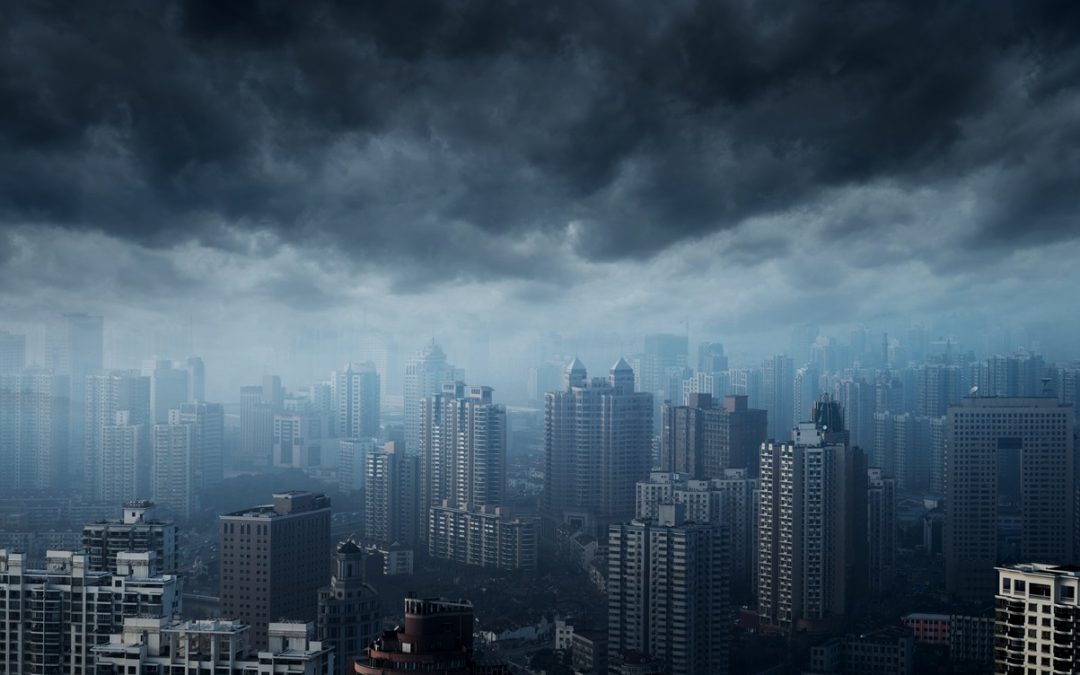
by Joseph | Feb 26, 2026 | Preparation, Sharing
In our world today, we are constantly faced with news of discord, conflict, and unrest. It can be easy to feel overwhelmed, anxious, and uncertain about the future. However, as believers in Christ, we have the assurance that God is with us, even in the midst of life’s storms.
The Bible is filled with accounts of individuals facing seemingly insurmountable challenges. In Mark 4:35-41, we read about Jesus and His disciples crossing the Sea of Galilee when a fierce storm arose. The disciples, filled with fear, woke Jesus, who was sleeping in the boat. With a simple command, Jesus calmed the wind and the waves, revealing His power over the elements and His ability to bring peace in the midst of chaos.
Just as Jesus brought peace to the disciples in the midst of the storm, He can bring peace to our hearts and minds in the midst of the discord and turmoil we face today. When we fix our eyes on Him and trust in His unfailing love and mercy, we can experience a supernatural calm that transcends our circumstances.
However, it is not enough to simply seek peace; we must also heed God’s promises and prepare for the challenges that lie ahead. In Luke 6:47-48, Jesus teaches, “Everyone who comes to Me and hears My words and acts on them, I will show you whom he is like: he is like a man building a house, who dug deep and laid a foundation on the rock; and when a flood occurred, the torrent burst against that house and could not shake it, because it had been well built.” (NASB)
By building our lives on the solid foundation of God’s Word and putting our faith into action, we can withstand the storms of life. We must prioritize our relationship with God, spending time in prayer, studying the Scriptures, and surrendering our lives to His will. As we do so, we will find the strength and resilience needed to face any challenge that comes our way.
The Apostle Paul, no stranger to hardship and adversity, reminds us in Philippians 4:6-7, “Be anxious for nothing, but in everything by prayer and supplication with thanksgiving let your requests be made known to God. And the peace of God, which surpasses all comprehension, will guard your hearts and your minds in Christ Jesus.” (NASB)
As we navigate the storms of life, let us cling to the promises of God, seek His peace through prayer and thanksgiving, and prepare our hearts and minds by building our lives on the firm foundation of His Word. May we find comfort in knowing that no matter what challenges we face, God is with us, and He will never leave us nor forsake us.
Joseph Report: The turmoils are going to increase. The battles are going to rage and become more difficult. Anger and bitterness will continue to ramp-up and divide people. There will be struggles, global health fears, and famine coming to the land – and America will soon see far greater discord and terror. The reality is, we must heed the call to prepare and lean on God for our strength. As the world around us grows darker, we must shine brighter, holding fast to our faith and trusting in the One who is able to keep us through every trial and tribulation. Let us not grow weary in doing good, but let us persevere, knowing that our labor in the Lord is not in vain (Galatians 6:9).
Prayer: Dear Heavenly Father, we come before You today, recognizing the discord and unrest that surrounds us. We pray for Your peace to fill our hearts and minds, even in the midst of the storms we face. Help us to trust in Your unfailing love and mercy, and to build our lives on the solid foundation of Your Word. Give us the strength and wisdom to face the challenges that lie ahead, knowing that You are with us every step of the way. As the world grows darker, help us to shine brighter, holding fast to our faith and trusting in You, our unshakable anchor. May Your peace, which surpasses all understanding, guard our hearts and minds in Christ Jesus. We thank You for Your faithfulness and the assurance that You will never leave us nor forsake us. In Jesus’ mighty name we pray, Amen.





 Joseph’s story reminds us that God is always present and working behind the scenes, even in our darkest hours. As a young man, Joseph was betrayed by his brothers, sold into slavery, falsely accused, and forgotten in prison. Talk about discouraging circumstances! Yet through it all, “the LORD was with Joseph” (Genesis 39:2).
Joseph’s story reminds us that God is always present and working behind the scenes, even in our darkest hours. As a young man, Joseph was betrayed by his brothers, sold into slavery, falsely accused, and forgotten in prison. Talk about discouraging circumstances! Yet through it all, “the LORD was with Joseph” (Genesis 39:2).




